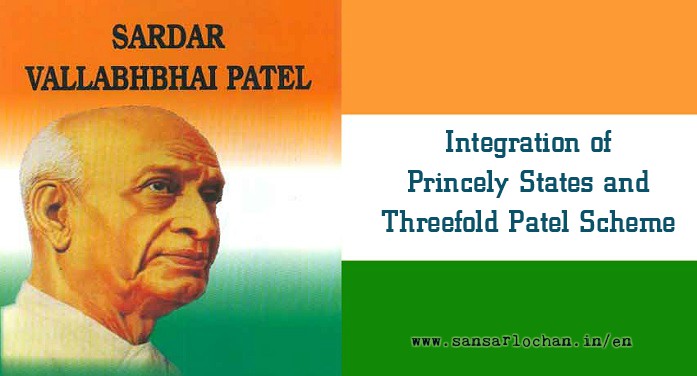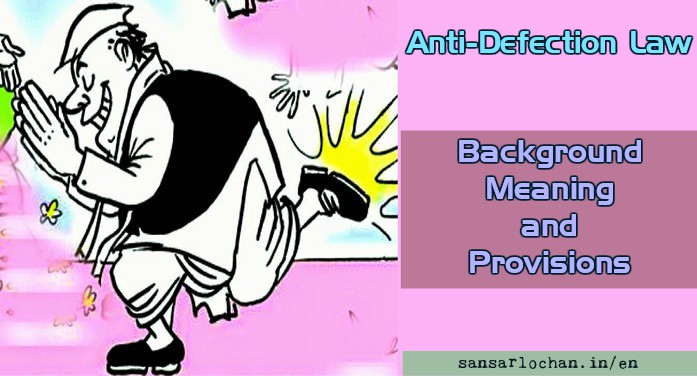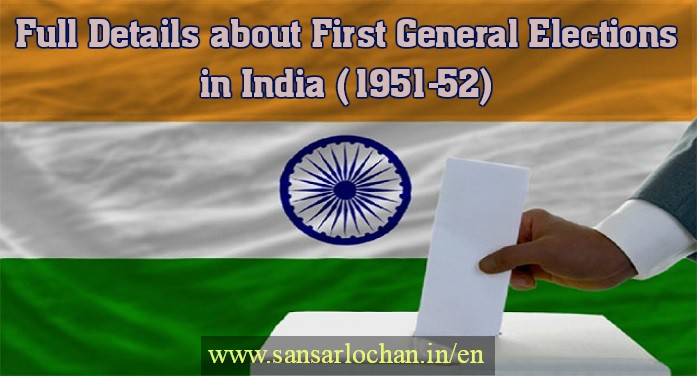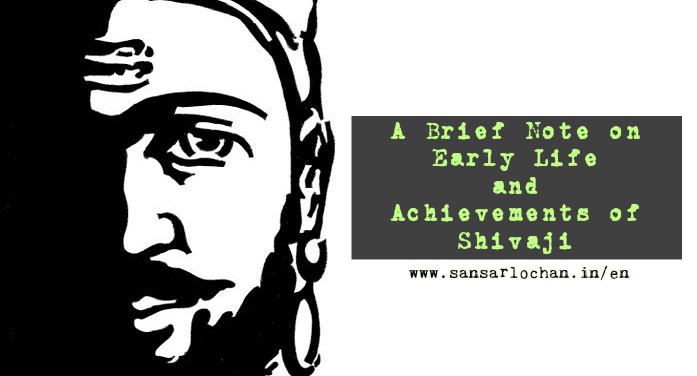In this article, we are giving a brief note on the integration of Princely States and threefold assimilation strategy adopted by Sardar Vallabh Bhai Patel. Sources we used for this article are Wikipedia and NCERT. Integration of Princely States British India consisted of British Indian Provinces and the Princely States. The British Indian provinces were directly under the control of … Read More
Anti-Defection Law : Background, Meaning and Provisions
What is Anti-Defection Law? Before defining anti-defection law, we should understand the meaning of defection. When an elected representative joins another party without resigning his present party for benefits, it is called defection. Thus a defector is one who is elected from one party and enjoys power in another party. The word defection is also called as “Floor Crossing” in … Read More
Full Details about First General Elections in India (1951-52)
First General Elections in India (1951-52) India became a Sovereign Democratic Republic with the adoption of Constitution on 26th January, 1950. General elections to the first Lok Sabha as well as state assemblies were held from October 1951 to February 1952, on the basis of universal adult franchise. Thus India, with a far greater population than that of the USA, … Read More
Very Short Note on Independence and Partition, Source NCERT
I am making a very short note on Independence and Partition of India with the help of NCERT History Books. Hope you will like it. So here is the story:- Independence and Partition After the second world war, the Labour Party came to power in England and Clement Atlee became the Prime Minister. He deputed a commission to India in … Read More
Places of Historical Importance – UPSC Map Related Questions
Here we are giving a list of some historical places of India and their importance in the Indian history. Sometimes in the UPSC mains examination, students are asked to explain the historical importance of the particular places given on the outline map of India. Places of Historical Importance Harappa Takshashila Pataliputra Badami Kanchi Halebeedu Delhi Devagiri Panipat Agra Hampi Bidar … Read More
The Period of the Moderates and the Extremists 1885-1920
The Period of the Moderates 1885-1905 From 1885 to 1905 the Indian National Congress was led by Dadabhai Naoroji, Pherozshah Mehta, Badruddin Tyabji, Anandacharalu, Surendranath Banerjee, Gopal Krishna Gokhle etc. They expressed loyalty to the British and believed in the British benevolence. They intended to pressurize the British Government through Prayers, Petitions and Protests. They organized public meetings, submitted memorandums … Read More
A Brief Note on Early Life and Achievements of Shivaji
The decline of Mughals led to the rise of independent states in different parts of India. Among them the Marathas were prominent. Shivaji was the founder of Maratha Kingdom. In this post, we will mention about early life of the great Shivaji and his achievements in different conquests. Early life of Shivaji Shivaji was born at Shivaneri in 1627 CE. … Read More
86th Constitutional Amendment : Free and Compulsory Education
Article 45 envisages states to provide free and compulsory education. It was not implemented properly. Hence, through 86th constitutional amendment it is made compulsory. The Parliament of India passed the 86th constitutional amendment act in 2002. Accordingly 21A is inserted in the constitution which aimed at making right to education a fundamental right for children between 6 to 14 years … Read More
Important Characteristic Features of Chalukyan Architecture
The Chalukyas of Badami have made marvelous contributions to Indian Art and Architecture. Building of Stambha Mandapa (Navaranga) and Sukhanasi along with the Garbhagriha was a unique contribution of the Chalukyas. They built many temples following the Nagara or North Indian Style and Dravida or South Indian style. They built their temples using red sandstone. They experimented many things in … Read More
Reservation System and Related Articles in our Constitution
As a result of caste based inequality the worst hit are the Schedule Castes (SC), Schedule Tribe (ST) and the other Backward Classes (OBC). In order to bring them to the mainstream, the makers of the Indian Constitution included certain provisions in parts III, IV and XVI of the Constitution. Article 15, 16, 17 and 46 contain revolutionary provisions for … Read More



